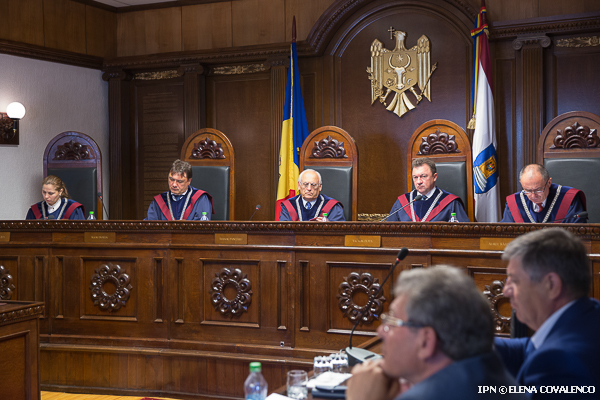The Constitutional Court ruled that President Igor Dodon’s decree to hold a national consultative referendum is unconstitutional. Following a challenge filed by the Liberal Party, the Court held that the questions formulated for the plebiscite are outside the President’s area of competence and, consequently, cannot be the subjects of a referendum initiated by the Head of State. It noted it is against the spirit of the Constitution for the President, hiding under the phrase “problems of national interest, to initiate a referendum that entails the amendment of the Constitution or covers issues that are within the remit of the academic community. The decision is definitive and cannot be appealed, IPN reports.
“Furthermore, the Court held that the questions proposed for the referendum refer to fully distinct areas. Therefore, the form and content requirements of the referendum subject, the validity requirements and non-vicious formation of the sovereign will of voters cannot be ensured,” Constitutional Court president Tudor Pantaru said, reading the decision.
The Court stated that by the March 28 decree, the President violated the Constitution’s provisions concerning the declaration of referendums and initiatives to review the Constitution.
The Court also declared unconstitutional paragraph 2 of Article 144 of the Election Code, which provides that at least 200,000 citizens with the right to vote, at least one third of MPs, the President or the Government can initiate any type of national referendum.
After the decision was pronounced, the leader of the Liberal Party Mihai Ghimpu said the Court’s decision is binding, including for the President, while Igor Dodon’s assertions that he could issue a new decree are just political games. “A democratic state with the rule of law does not mean that you can do what you want if you hold a particular post. The Constitution clearly stipulates the powers, duties, rights and freedoms,” he stated.
Presidential adviser Maxim Lebedinski said it is premature to say what actions will be taken after today’s decision. The position will be stated after the explained part of the decision is published. The action witnessed today is political in character and limits the President’s powers. Moreover, it was an abusive and restrictive interpretation by the Court whereby they try to limit these powers. “What we witnessed today and the previous days – the good mood of Mister Ghimpu – shows that the alliance works, even if informally and, through the agency of the PL, the government de facto tried once again to limit the President’s powers,” stated the adviser.
Under the presidential decree signed on March 28, the plebiscite will take place on September 24 and the people will answer four questions about the conversion of the emergency loans provided by the National Bank of Moldova to three bankrupt banks into a state debt, offering of additional powers to the President to dissolve Parliament in other conditions than the current one, opportuneness of reducing the number of MPs from 101 to 71 and teaching of the History of Moldova course in schools. On July 26, Igor Dodon said he could sign another decree to hold a referendum if the Constitutional Court decides to annul the national consultative plebiscite initiated by him.

